Recent Blog Posts
Illinois Man Receives More Than Five Years for Counterfeiting
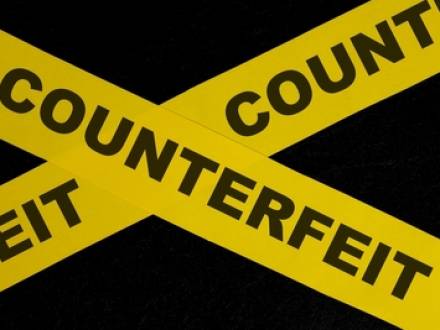 A Bismarck, IL man was recently sentenced to five-and-a-half years in federal prison for manufacturing, selling, and possessing counterfeited U.S. currency. The man sold counterfeit U.S. money to an Illinois State Police undercover officer for $1,000, then later sold the same officer another $1,000 and $5,000 in counterfeit dollars.
A Bismarck, IL man was recently sentenced to five-and-a-half years in federal prison for manufacturing, selling, and possessing counterfeited U.S. currency. The man sold counterfeit U.S. money to an Illinois State Police undercover officer for $1,000, then later sold the same officer another $1,000 and $5,000 in counterfeit dollars.
A search warrant was executed for the man’s residence, where printers, a paper cutter, and other supplies used to make counterfeit money were seized. The man was on federal supervised release for a prior counterfeiting conviction from 2022 after serving 27 months in federal prison for that offense.
The maximum statutory penalty for counterfeiting and forgery is up to 20 years in prison, with a maximum fine of $25,000. If you are facing federal counterfeiting charges, it is crucial that you have a Naperville, IL white-collar crimes attorney who is experienced in defending federal crimes.
Will I Have To Register as a Sex Offender for Public Indecency in Illinois?
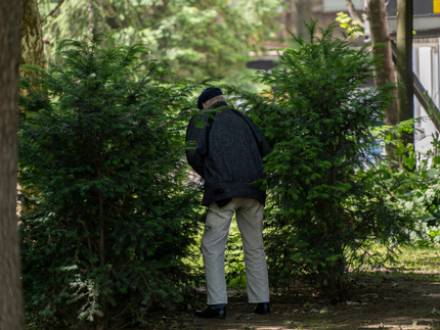 Public indecency charges can sometimes come out of nowhere. Many people who are accused of public indecency did not know that their actions could result in criminal charges and are not even aware of what constitutes public indecency when they are charged. Others have been down this road before and could be looking at felony charges that may result in registering as a sex offender if convicted.
Public indecency charges can sometimes come out of nowhere. Many people who are accused of public indecency did not know that their actions could result in criminal charges and are not even aware of what constitutes public indecency when they are charged. Others have been down this road before and could be looking at felony charges that may result in registering as a sex offender if convicted.
If you are facing an upcoming legal battle for an inappropriate sexual act in public, you need an experienced and aggressive Naperville, IL public indecency defense attorney to help you understand the allegations against you and what you can do to challenge them.
What is Public Indecency in Illinois?
Illinois statute 720 ILCS 5/11-30 defines the crime of public indecency as the act of sexual conduct or penetration in a public place or committing lewd exposure of the body with the intention to arouse someone, including yourself, or to satisfy a sexual desire in a public place. Essentially, the law prohibits you from doing anything sexually inappropriate or explicit in a place where you should have no reasonable expectation of privacy, and it applies to anyone age 17 or older.
Can I Fight an Aggravated DUI That Resulted in Death?
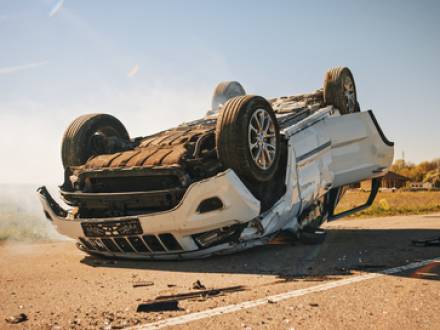 Aggravated DUI alone is a serious offense, but when you factor in an accident that resulted in someone’s death, it is among the most serious offenses under Illinois criminal law. If you are facing a charge for aggravated DUI resulting in death, the legal consequences can be devastating for you and your family. Before you face a judge, you need a knowledgeable Illinois aggravated DUI defense attorney to help you understand the laws that govern these cases and to build a robust defense to fight the allegations.
Aggravated DUI alone is a serious offense, but when you factor in an accident that resulted in someone’s death, it is among the most serious offenses under Illinois criminal law. If you are facing a charge for aggravated DUI resulting in death, the legal consequences can be devastating for you and your family. Before you face a judge, you need a knowledgeable Illinois aggravated DUI defense attorney to help you understand the laws that govern these cases and to build a robust defense to fight the allegations.
What Does Illinois Law Say About Aggravated DUI With Death?
Statute 625 ILCS 5/11-501 under Illinois law addresses DUI offenses. In general, it defines a DUI as the act of operating a vehicle while intoxicated by drugs, alcohol, or both. The legal limit for blood alcohol concentration is set at 0.08 percent, but it is stricter if you are a truck driver or under the age of 21. Most DUIs are misdemeanors, but an aggravated DUI resulting in death can be a Class 2 or Class 1 felony, depending on the circumstances, and the potential penalties for either are severe.
Challenging Theft and Stolen Property Charges in Illinois
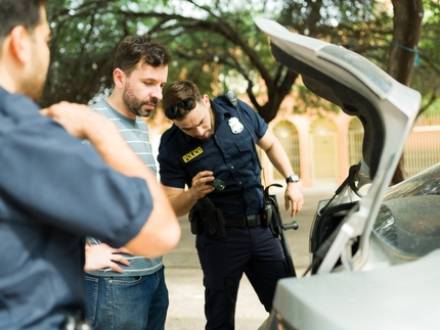 Facing a theft charge can be intimidating. The penalties are often harsh, especially if you have a previous conviction, and the laws that govern these cases are complex. Working with an experienced Naperville, IL property crimes defense attorney is invaluable to your case, and building a defense strategy for a theft charge requires a thorough understanding of Illinois criminal law.
Facing a theft charge can be intimidating. The penalties are often harsh, especially if you have a previous conviction, and the laws that govern these cases are complex. Working with an experienced Naperville, IL property crimes defense attorney is invaluable to your case, and building a defense strategy for a theft charge requires a thorough understanding of Illinois criminal law.
How Illinois Law Defines Theft
Under the Illinois Criminal Code of 2012, a person commits theft when they knowingly do one of the following:
-
Exerts control over someone else’s property without authorization from the property owner
-
Obtains control over another person’s property by deception or threat
When Does Extortion Become a Federal Offense?
 Extortion and related charges can be tried in state or federal courts, depending on the circumstances surrounding the alleged crime. If you have been charged with extortion, understanding the charge against you is the first step in challenging it. If convicted, you could face serious penalties, including a felony conviction on your criminal record. With the help of an experienced Naperville, IL extortion defense attorney, you can build a defense to challenge the charge.
Extortion and related charges can be tried in state or federal courts, depending on the circumstances surrounding the alleged crime. If you have been charged with extortion, understanding the charge against you is the first step in challenging it. If convicted, you could face serious penalties, including a felony conviction on your criminal record. With the help of an experienced Naperville, IL extortion defense attorney, you can build a defense to challenge the charge.
Does Illinois Have Extortion Laws?
Illinois law addresses the crime of intimidation, often referred to as extortion in other states. Intimidation occurs when someone intentionally threatens another person in an attempt to get them to do something or refrain from doing something. You could face an intimidation charge if you do any of the following:
What Happens if I Have Been Charged With a Hit-and-Run in Illinois?
 Leaving the scene of an accident can be a serious offense in Illinois, mainly depending on the severity of the crash and whether anyone suffered injuries. The consequences can be as harsh as incarceration and steep fines. If you have been charged with a hit-and-run accident, an experienced Naperville, IL hit-and-run defense attorney can help you understand the charges against you, the possible defenses, and the potential penalties you may face.
Leaving the scene of an accident can be a serious offense in Illinois, mainly depending on the severity of the crash and whether anyone suffered injuries. The consequences can be as harsh as incarceration and steep fines. If you have been charged with a hit-and-run accident, an experienced Naperville, IL hit-and-run defense attorney can help you understand the charges against you, the possible defenses, and the potential penalties you may face.
Are All Hit-and-Run Charges the Same in Illinois?
There is a range of charges you could face for a hit-and-run. A few examples of hit-and-run cases that attorneys see often include:
-
Property damage to an unattended vehicle: If you hit an unattended car, Illinois law mandates that you locate the owner and notify them of the accident and your contact information, or leave the information on a card. Failure to do so would result in a Class A misdemeanor.
What Will Happen if You Violate Probation in Illinois?
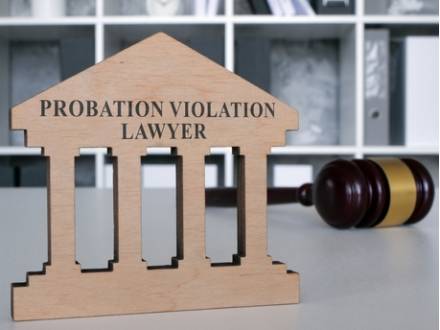 Probation is generally awarded as an opportunity to start your life over and avoid jail time. Therefore, violating the terms can have serious consequences. When facing a probation violation charge, a Naperville, IL probation violations attorney can help you take action to protect your future. Whether you want to challenge the allegations, negotiate with the court, or prove that you have been compliant, having an experienced legal representative can be an asset to your case.
Probation is generally awarded as an opportunity to start your life over and avoid jail time. Therefore, violating the terms can have serious consequences. When facing a probation violation charge, a Naperville, IL probation violations attorney can help you take action to protect your future. Whether you want to challenge the allegations, negotiate with the court, or prove that you have been compliant, having an experienced legal representative can be an asset to your case.
What Are Some Types of Probation Violations?
Probation violations can be divided into two categories: technical and substantive. Technical violations refer to any failure to meet the terms of your probation. Some common examples include:
- Receiving a positive drug test
- Failing to pay your fines or court costs
- Failing to complete the community service requirements
Understanding Underage Drinking Laws in Illinois
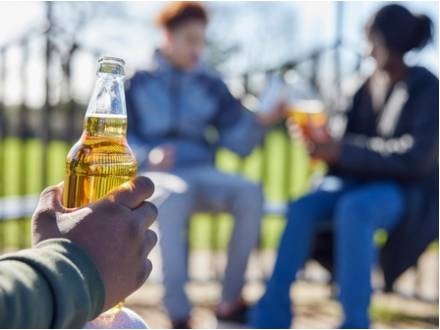 Underage drinking can have serious consequences for minors or adults under 21, as well as anyone who assists in this illegal activity. Penalties for a conviction can cause major life disruptions and result in significant financial burdens.
Underage drinking can have serious consequences for minors or adults under 21, as well as anyone who assists in this illegal activity. Penalties for a conviction can cause major life disruptions and result in significant financial burdens.
If you are facing or have a child facing a charge related to underage drinking, such as driving under the influence (DUI), you need the assistance of an experienced Naperville, IL underage drinking defense attorney. These cases are nuanced and require careful consideration of the Illinois laws that apply when building a strong defense.
Illinois Laws That Apply to Underage Drinking
Illinois laws that every person under or over the legal drinking age should know include:
-
235 ILCS 5/6-20: This statute mandates a minimum age of 21 to consume alcohol and prohibits the purchase, possession, or acceptance of alcohol for minors and underage adults. Religious ceremonies that incorporate alcohol are an exception.
Defending Against Burglary Charges in Illinois
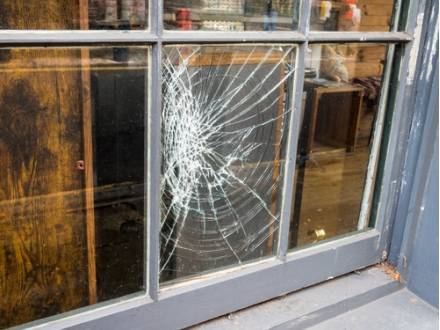 Burglary is a felony in Illinois, carrying heavy penalties. It can be challenging to defend and requires extensive knowledge of the laws that govern these cases. If you are facing burglary charges, learn more about the basics of defending yourself and how a Naperville, IL burglary defense attorney can help you navigate the legal process.
Burglary is a felony in Illinois, carrying heavy penalties. It can be challenging to defend and requires extensive knowledge of the laws that govern these cases. If you are facing burglary charges, learn more about the basics of defending yourself and how a Naperville, IL burglary defense attorney can help you navigate the legal process.
What the Prosecution Must Prove in Burglary Cases
Actual theft is not a requirement for proving burglary in Illinois. To convict, the prosecution needs to prove that you entered a building, car, plane, or boat without authorization and at least attempted to steal something or commit another crime. For residential burglary, the prosecution must prove that you knowingly entered another person’s dwelling and intended to take something.
Intent is often the most difficult element to prove. It is hard for anyone to produce evidence of someone else’s state of mind under any circumstances. Should the prosecution fail to prove intent beyond a reasonable doubt, the charge will likely be dropped to criminal trespass, which is a lesser offense.
What Are the Consequences of Failing to Appear in Court?
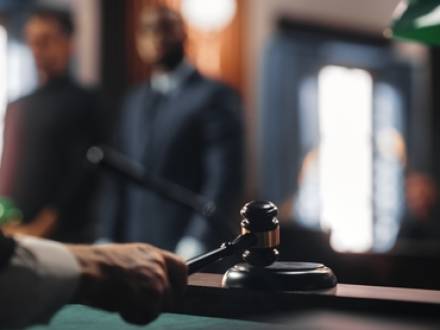 People who are charged with criminal offenses in Illinois are typically required to appear in court at scheduled dates throughout the legal process. Failing to appear in court can result in serious legal consequences that could extend far beyond the original charges. If you are involved in legal proceedings, you need to understand the potential outcomes of missing your court date and what you might be able to do to address the situation. A qualified Illinois criminal defense lawyer can offer valuable guidance as you go through the process.
People who are charged with criminal offenses in Illinois are typically required to appear in court at scheduled dates throughout the legal process. Failing to appear in court can result in serious legal consequences that could extend far beyond the original charges. If you are involved in legal proceedings, you need to understand the potential outcomes of missing your court date and what you might be able to do to address the situation. A qualified Illinois criminal defense lawyer can offer valuable guidance as you go through the process.
What Happens if I Fail to Appear on My Court Date?
Failing to appear in court in Illinois is a serious offense that can lead to additional charges and penalties beyond those you were scheduled to appear in court for in the first place. The specific consequences you could face depend on the nature of the original case and the circumstances surrounding your absence in court. Some potential outcomes include:














